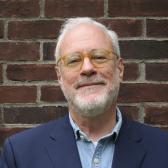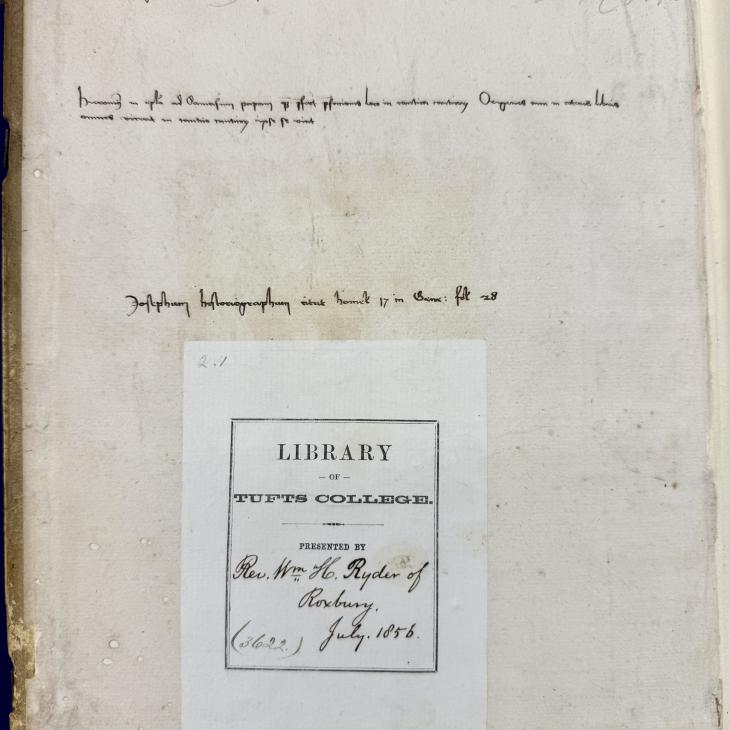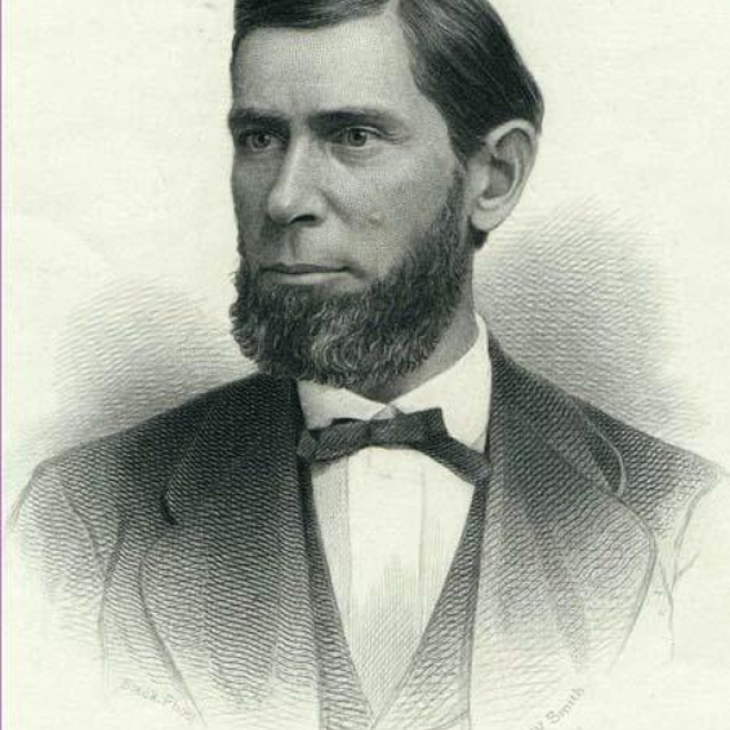William Henry Ryder was born in Provincetown, Massachusetts July 18, 1822 to Universalist parents. He received theological training at the Pembroke Academy in New Hampshire and the Liberal Institute in New York before being ordained as a pastor and beginning work at a Universalist church in Concord, New Hampshire. After two years, he moved to take charge of the parish in Nashua, NH in 1846. In 1848, he resigned from his position to take an extensive tour abroad, spending seven months studying in Germany and then traveling to Israel and Palestine. On his return he took charge of a Universalist church in Roxbury, Massachusetts, where he served for 10 years. After this, he worked as a pastor for St. Paul’s Church Chicago, holding the position until he resigned in 1882. He was granted an honorary degree from Harvard College in 1860 and from Lombard University in 1863.
Known as an eminently successful preacher and pastor, Ryder was also an early abolitionist. He was an ardent supporter of the Union during the Civil War. After the war’s end, he organized an industrial school for African American children as an agency of his church in Chicago and traveled to Richmond as an agent of the Sanitary Commission to collect material for the Sanitary Commission Fair. While there, he collected records of the Confederate government, Register of Treasury Notes, a war registry, and various letters, reports, receipts, loans, prison reports, artifacts, and other materials pertaining to the Civil War, a collection later donated to Tufts University.
Throughout his life and after his death on March 7, 1888, Ryder donated extensively to various Universalist churches and institutions, including the General Convention, St. Paul's Church Chicago, First Universalist Society Provincetown Mass., Illinois Universalist Convention, Buchtel College, the divinity schools at St. Lawrence, Tufts, and Lombard Colleges, and to the Universalist Publishing House. In his obituary in the Universalist Register, it is said that “his example of fidelity to conviction, of patriotism, of interest in home and foreign missions and in reforms calculated to advance society, will continue to inspire our people.”
For further information and access to the Ryder Collection, please contact specialcollections@tufts.edu.



